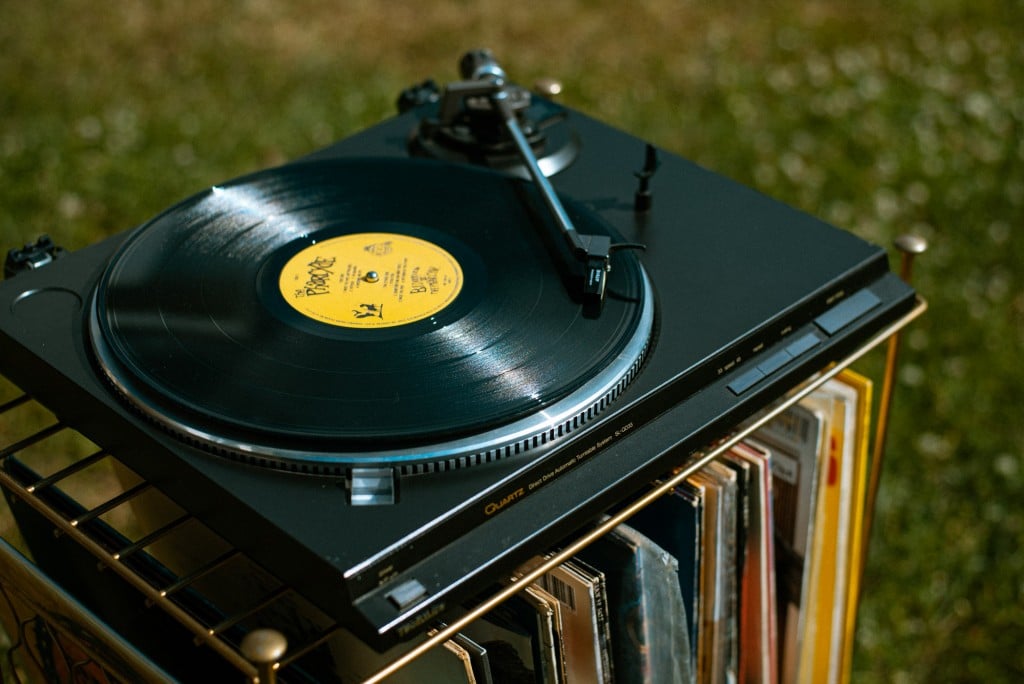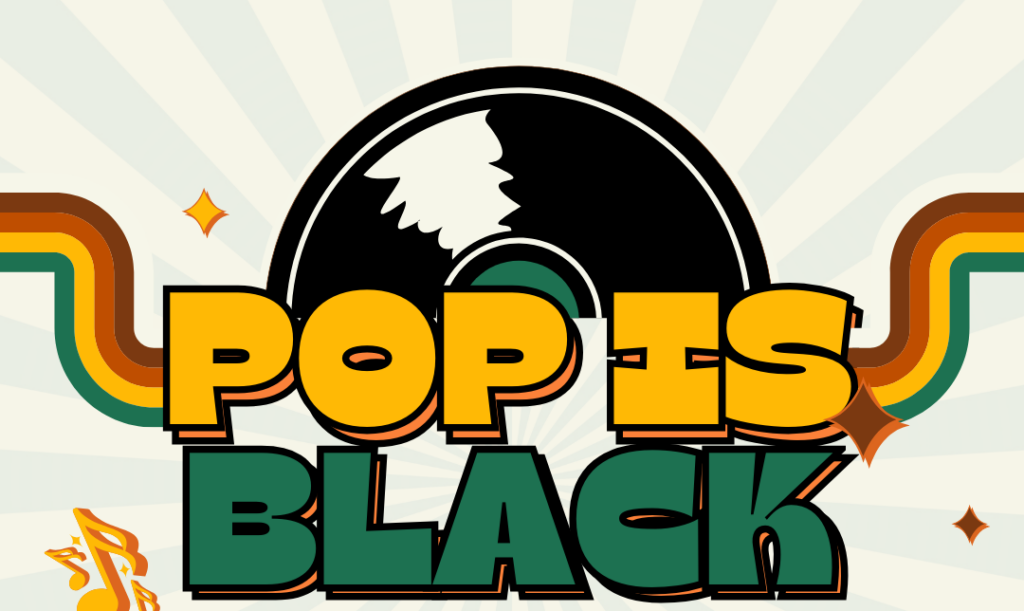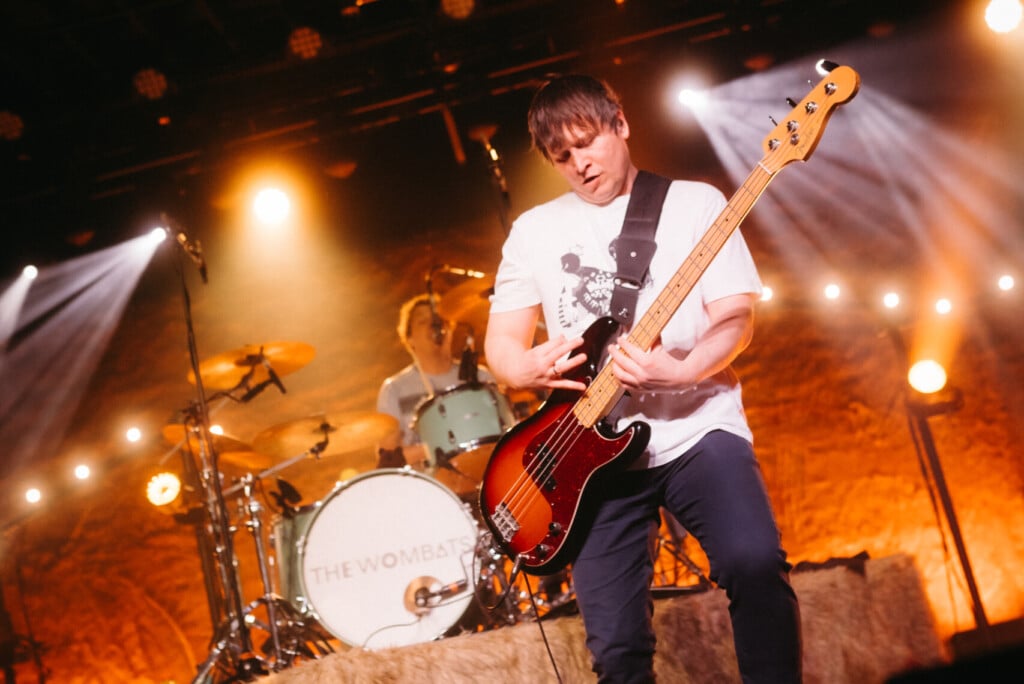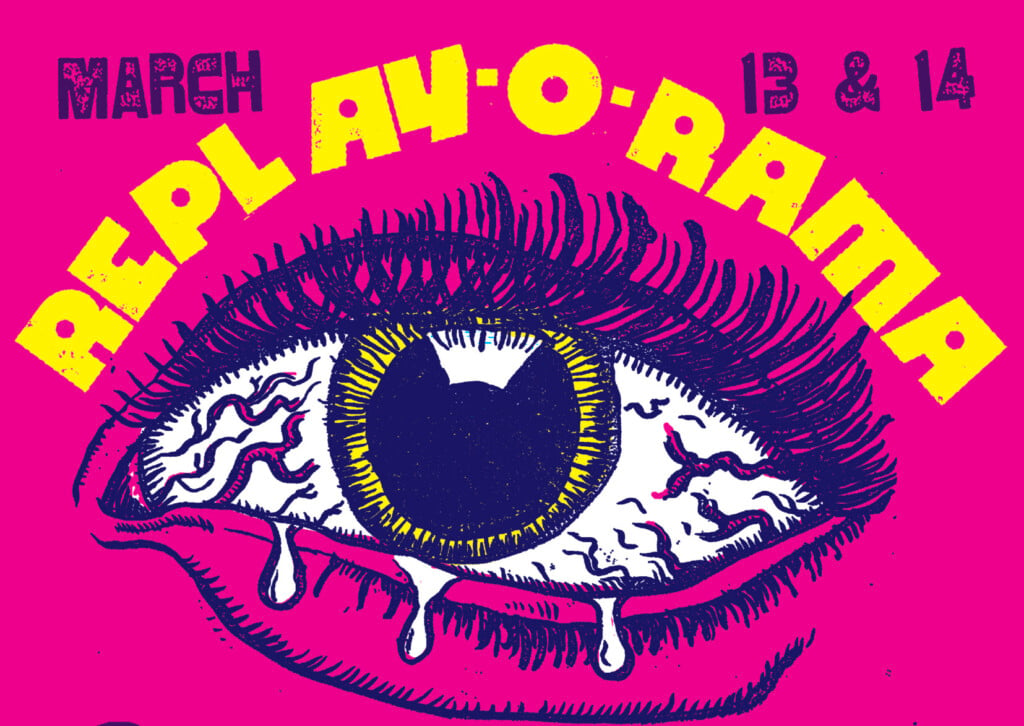Joeymania
The Granada is supposed to be sold out. On its way to joining the “secret club” (Anything But Joey‘s own term for the elite clique of successful locals such as the Get Up Kids and the Anniversary), the group has filled equally large venues, and tonight it teams with prominent co-headliners Ultimate Fakebook. Unfortunately, booking the Lawrence venue on an Easter weekend means playing while a good percentage of Lawrence’s student population is away, and it doesn’t help that rain is streaming down in unforgiving sheets. Though the 400 fans in attendance are die-hards and some waited hours to get in, the turnout is a bit disappointing.
But any mixed feelings about the gig disappear the second ABJ takes the stage. The band’s concerts are a force to behold, a cathartic blast of youthful energy. Bryan Chesen brandishes his guitar like a fencer, bassist Drew Scofield bops along amicably and Jeff Polaschek is a study in perpetual motion while seated at the drums. But it’s singer Matt Groebe who’s clocking the most onstage miles tonight. He scales one of the Granada’s twin speaker towers, sings a few bars and then leaps back to the stage with acrobatic ease. He hops to his feet, jumps onto the drum riser and back to center stage.
Near the end of the set, “Girl Roommate” provokes the largest response, unsurprising given that the song has aired more than 650 times on KRBZ 96.5. The success of the song still shocks ABJ; the group has included it in live sets for eons.
“That song was two years old when the album came out,” says Scofield, who pens the majority of ABJ’s songs. “I didn’t think it was going to be the big hit.”
The song’s origin, he insists, is grounded in reality. “I had a girl roommate for three years. I was in love with her — she was my best friend. I never hooked up with her, but I did get to see her naked a few times.”
Success, however, can be a double-edged sword, and ABJ has gotten a bit tired of its local smash.
“It’s a good song, but we’ve been playing it for three years,” Polaschek says. “I don’t hate it by any means, but because we have to play it now at every show, I wish we didn’t have to.”
The Granada set crashes to a close, and Groebe staggers backstage, collapsing on a nearby couch. He’s under the weather tonight, plagued by a flu bug. The crowd chants ABJ, ABJ, and the band forms an impromptu circle. Normally, the band members eschew encores, but tonight they make an exception, partially to thank the devotees who braved the downpour to be here.
“Let’s go,” Groebe urges the others, “Let’s not make them wait.”
A week later, things are looking better at Rock for Hope, an annual benefit concert held at ABJ’s high school alma mater, Shawnee Mission West. With more than 1,000 rabid fans on hand, the halls of the school overflow with teen spirit. The band’s merchandise booth is doing brisk business, and a number of teenyboppers sport the group’s T-shirts, one of which promises You’re gonna need a towel.
ABJ’s history runs parallel to that of Rock for Hope. In 1996, ABJ (known then as Thulium) was in its beginning stages, four high school buds looking to have a few laughs and meet girls. The outfit also assumed that it would be a shoo-in to play the first Rock for Hope but wasn’t selected.
“We were too arrogant, and we didn’t get in,” Chesen recalls. “And we shouldn’t have — we were god-awful. So the next year, we tried out and we actually did make it. That was a good time. We got to play on the ‘student’ stage.”
A year later, the band performed on the main stage alongside Ultimate Fakebook and Ruskabank.
“That was a big deal for us,” Polaschek says. “It was our first crowd. It wasn’t like our friends. It was actually a crowd of people. It’s a very good feeling, for the first time, to have a bunch of people you don’t know standing there screaming. We sucked back then, and we haven’t gotten much better. It just happens to be on a bigger scale now — we suck on a bigger scale.”
West’s gymnasium is filling up, and hundreds of high-pitched voices begin to chant ABJ, ABJ. The band takes the stage in a hailstorm of applause, and the crowd surges forward. It’s one of those gigs where it seems like there are as many people watching from the side of the stage as there are in the audience. Halfway into the set, the soundman informs the band that it has time for only two more songs. ABJ immediately takes it to the stage, asking the audience if it wants more. The response is thunderous, and ABJ rips into “Lushbox” with streamlined vigor.
The number ends in pandemonium, followed by pleas for more. Polaschek steps from behind the drums and grabs Groebe’s mic. “They say we only got two more,” he informs the crowd as Groebe, now seated at the drums, launches into a rudimentary hip-hop beat. “That doesn’t count as rap music, does it?” Sporting a green Atari shirt, Polaschek commences a slew of cheesy white-boy rhymes, pausing for a goofy break dance. It’s a tradition that goes back to the band’s first shows. “I think we got two more,” he says as the song concludes. The soundman furiously stalks around backstage, looking like he’s about to yank a few power cables. Onstage, ABJ is killing, its members looking and sounding like rock stars.
Anything But Joey’s earliest efforts under the Thulium moniker were anything but good. Though the band’s predilection for power pop was apparent, its material suffered from putrid production and lousy titles like Mars Needs Pimps, Too. In 1999, Thulium finally got it right with a full-length titled The Secret Club, an album jammed with memorable soda-pop valentines. The group began performing regularly and earned a small but devoted female following, jokingly dubbed “Girls With X’s.”
“Those aren’t your fans; those are your friends,” Chesen explains. “Those are people you work with, those are your relatives and the one or two people that they bring. So you get 25 of your friends to bring one friend each. But it was kind of intimate.”
The only drawback was that Thulium had difficulty introducing newer material into its live sets; the fans preferred repeats of their favorite Club tunes.
When Thulium entered a Dallas, Texas, studio in March 2002 to record Come Out Fighting, it had a hot batch of fresh material and a confidence honed from years of gigging. Prepared for a new era, Thulium decided to change its name.
“We came up with a bunch of different ideas,” Scofield recalls. “We were gonna do Owed to Joey, the Joey Effect, Something Other Than Joey, Letters From Cleo to Joey. We all decided that Joey was what we liked about it.”
“Because Katie Holmes from Dawson’s Creek, her character’s name is Joey,” Polaschek chimes in.
“No, it’s because I like Joey Lawrence,” Groebe cracks.
“The fans didn’t like any of the Joey names,” Scofield continues. “It was almost like they were saying they wanted us to be called anything but Joey. So we decided on that. Then our roommate was like, ‘That’s a BJ,’ and that sealed the deal.”
Things haven’t been the same since “Girl Roommate” was put into regular rotation on 96.5 last August. The song proved so popular that ABJ landed a slot opening for Jimmy Eat World and Good Charlotte at Memorial Hall, another turning point. When ABJ tore into “Girl Roommate,” the place went nuts, giving the band a full-blown sing-along treatment.
“A few years ago, we saw Weezer there. To think we would play there,” Groebe marvels. “And there we are in front of 3,000 kids, and 90 percent of them know one of our songs.”
ABJ sold more merchandise that night than any band except the headliners, and everyone who bought a T-shirt told a friend or two. A few weeks later, 1,400 kids showed up to see them at the Beaumont Club, and ABJ’s days as a small-club band were history. ABJ toured with A Simple Plan and Bowling for Soup and played for 10,000 LL Cool J fans in Detroit.
“It is marketing,” Groebe insists. “We’ve figured out what works and what doesn’t. And a lot of bands from Kansas City equate success in marketing to selling out.”
Selling out is exactly the critical barb launched most often at ABJ, which has earned the dual distinction of being both popular and hated. Welcome to the secret club.
“People hate us, whether it’s because they hate pop-rock or they think we really do suck,” Chesen says. “We are not the best band in Kansas City. We’re not the tightest, we’re not the best singers, we’re not the best anything. We are entertaining. We have a good time, and we are nice guys to our fans, but it’s a lot of luck and a lot of trying really hard.”
Naysayers have also lambasted the group for its 96.5 exposure, partially thanks to Chesen and Polaschek’s hosting of the station’s local music program. The Sunday night show has proven popular, averaging 4,500 listeners, according to the station. But the pair hasn’t used the connection to hype ABJ or even mention the group on the air.
“This is the first time that we’ve ever said it to the press on record,” Chesen confesses. “When the bands come in, they don’t realize it’s us, and then when they meet us they’re like, ‘Oh, that’s why you’re on the Buzz.’ It couldn’t be further from the truth. We’re not allowed to play Anything But Joey, so we actually hurt our overall amount of spins. But if we played our own music, wouldn’t that just look fucking stupid?”
The guys aren’t at the station one recent night, having taped the show earlier in the week to clear the way for a Sunday evening acoustic show at the Topaz Café. The Topaz is a typical sports bar — trophy displays, yellowing newspaper clippings, inflatable Bud Light shamrocks hanging from the ceiling. Not that there are too many drinkers in the house tonight. It’s an all-ages show, and ABJ’s teenage fan club is out in full force — 160 of them are crammed into booths and around tables, with a gaggle of young girls seated cross-legged in front of a small stage. Eighty percent of the crowd is young and female. A few guys linger, and a handful of parents wait patiently in back.
“I’m in love with Drew Scofield,” squeals Krista, a sixteen-year-old Spring Hill High School student. “He and I are gonna get married. Not really. He’s a genuine, sweet guy, and he just has this aura about him that’s, like, genuine niceness, and I just love it.”
Her friend Kristain prefers Polaschek.
“I love Jeff. He makes me laugh,” she gushes. “When he plays the drums, he looks like a Muppet baby. Is Gonzo one? Gonzo, that’s who. I love you, Jeff. I freakin’ love you!”
The stripped-down setup puts Groebe and Scofield’s deft harmonies up front. The group, which staunchly shies away from Thulium material, even breaks out a number of old tunes tonight. Groebe introduces a “Van Halen cover” that turns out to be Radiohead’s “Creep.” After the show, the band is besieged by fans demanding autographs, hugs, pictures and occasionally a little more. A soccer mom slips Scofield her phone number with a wink and a smile.
This summer, ABJ will perform on a number of Warped Tour dates. (The tour stopped in KC last week.) Proceeds from Come Out Fighting will help finance the quartet’s next effort, which might be released on a major label. The band has been courted by a number of them — and has turned down an offer from Jive — but has no immediate plans to sign a deal. However, ABJ has been picked up for sponsorship by Budweiser, which will include “Girl Roommate” on a compilation disc to be distributed with the August issue of Blender. That exposure alone (350,000 copies) will direct attention toward the KC music scene, making it possible for other area groups to get noticed.
“Bridge out,” advises eighteen-year-old fan Ali Holden, who just got her hat signed by all four ABJ members at the Topaz. Holden plans to go into music management, so she’s put some thought into ABJ’s future. “Get away from KC, and try to limit your time playing in local venues. Because if you play too much here, people are gonna get burned out. But I totally dug this. It was really awesome. I was right in front, bobbing around and singing at the top of my lungs.”




